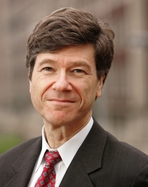 Jeffrey Sachs
Jeffrey Sachs
In 1992, the UN Framework Convention on Climate Change rightly called for a stabilisation of greenhouse gas concentrations at a level that would prevent dangerous climate change. The UN Climate talks that have just begun in Paris can and should underpin the decarbonisation of the global economy needed to meet that goal.
Signatories to the convention have agreed to limit global warming to no more than 2C, or 1.5C if the emerging science justifies it. To have a two-thirds probability of meeting the 2C target, total CO2 emissions between 2011 and 2100 have to be less than about 950bn tons. Emissions from energy need to fall from about 35bn tons this year to 10-15bn tons by 2050, and to zero by about 2070.
Such decarbonisation is achievable with current technologies. The cost will be modest assuming significant technological improvements that are within reach, through a combination of targeted research and learning by doing.
A global collaboration of energy research teams has identified the steps that need to be taken by 16 countries that are major emitters. The proposals all involve better energy efficiency, through smart buildings, power grids and transport. They rely on low-carbon power, such as wind, solar, nuclear, geothermal or hydroelectric. They entail eliminating carbon-based fuels: vehicles and planes must switch to electricity, hydrogen fuel cells or advanced biofuels; buildings and industry must swap heating oil for electricity and fuel cells.
The article’s full-text is available here.











